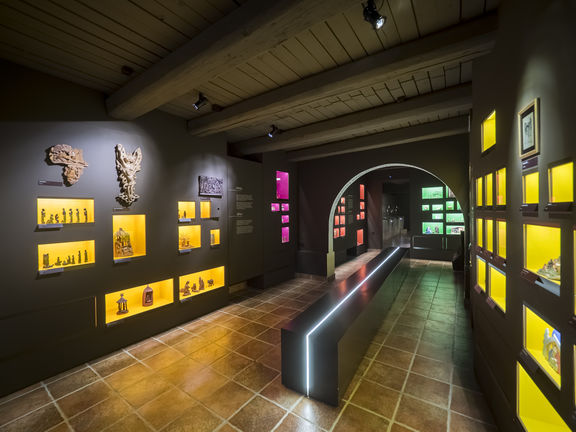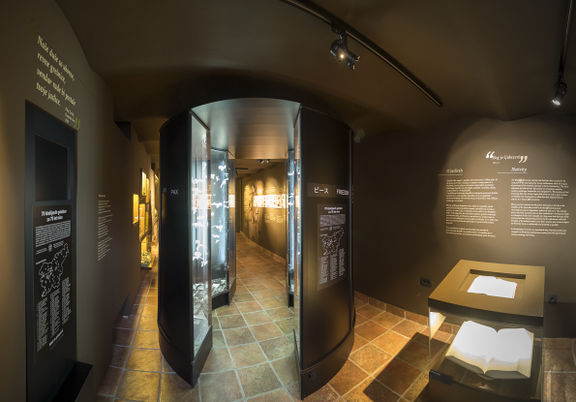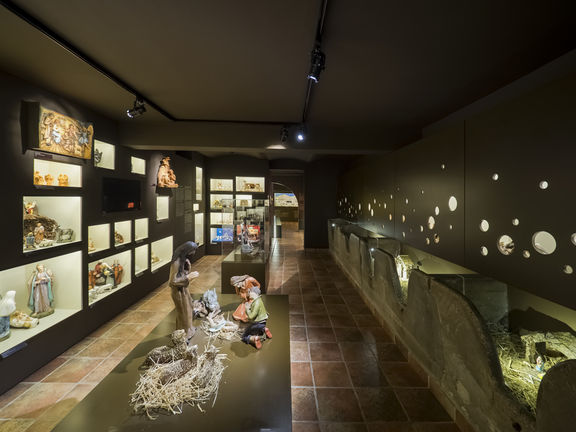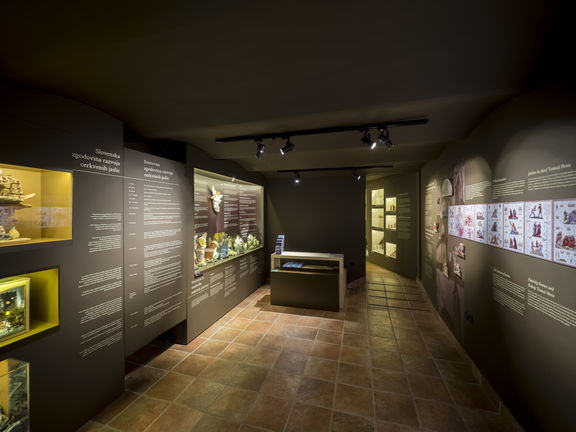Difference between revisions of "Nativity Museum Brezje"
| Line 34: | Line 34: | ||
== Collection == | == Collection == | ||
| − | The museum’s collection has been built with the help of the Association of Nativity Lovers led by father [[Leopold Grčar]], an expert on the topic, and the Slovenian Catholic Mission Centre under the [[Gorenjska Museum|Gorenjska Museum's]] museological supervision. The Nativity sets range from the 18th century to contemporary craft-making. Among the most localised are the replicas of the Slovenian corner Nativity scene by [[Maksim Gaspari]] (1921) and the printed sheets after medieval frescoes from Slovenia by [[Aleksa Ivanc Olivieri]] (1946). The theatrical Nativity scene painted by [[Leopold Layer]] (before 1828) neatly connects the museum to the pilgrimage basilica and its | + | The museum’s collection has been built with the help of the Association of Nativity Lovers led by father [[Leopold Grčar]], an expert on the topic, and the Slovenian Catholic Mission Centre under the [[Gorenjska Museum|Gorenjska Museum's]] museological supervision. The Nativity sets range from the 18th century to contemporary craft-making. Among the most localised are the replicas of the Slovenian corner Nativity scene by [[Maksim Gaspari]] (1921) and the printed sheets after medieval frescoes from Slovenia by [[Aleksa Ivanc Olivieri]] (1946). The theatrical Nativity scene painted by [[Leopold Layer]] (before 1828) neatly connects the museum to the pilgrimage basilica and its ''Mary Help of Christians'', painted by the same artist in the beginning of the 19th century, that became the most popular sacral image in Slovenia. The museum exhibition presents the history of nativity making and the meaning of the nativity figures and scenes. |
== See also == | == See also == | ||
Revision as of 22:54, 4 January 2020
Collection
The museum’s collection has been built with the help of the Association of Nativity Lovers led by father Leopold Grčar, an expert on the topic, and the Slovenian Catholic Mission Centre under the Gorenjska Museum's museological supervision. The Nativity sets range from the 18th century to contemporary craft-making. Among the most localised are the replicas of the Slovenian corner Nativity scene by Maksim Gaspari (1921) and the printed sheets after medieval frescoes from Slovenia by Aleksa Ivanc Olivieri (1946). The theatrical Nativity scene painted by Leopold Layer (before 1828) neatly connects the museum to the pilgrimage basilica and its Mary Help of Christians, painted by the same artist in the beginning of the 19th century, that became the most popular sacral image in Slovenia. The museum exhibition presents the history of nativity making and the meaning of the nativity figures and scenes.






